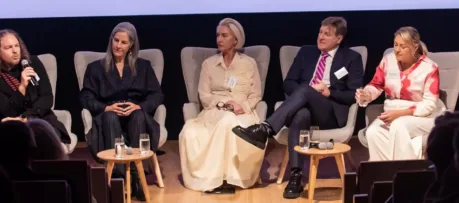There are a number of processes which are available both within and beyond the court arena to assist parties to resolve their dispute without the need for a judicial determination. The processes are known as “Dispute Resolution”.
Dispute Resolution may include:
Within the Court system
a. Less Adversarial Trial
b. Case Management by a Judicial Officer
c. Case Assessment Conferences
d. Child Dispute Conference
e. Conciliation Conference
Beyond the Court system
a. Settlement negotiations with assistance of lawyers
b. Settlement negotiations between the parties
c. Collaborative law approach to settlement;
d. Family Dispute Resolution;
e. Mediation
f. Arbitration
The aim of dispute resolution is to assist the parties to come to a final resolution themselves. Within the Court arena this can be done with the assistance of legal representatives if the parties choose to be represented and with the additional assistance of a representative from the Court (eg. a Registrar who is a lawyer working with the Court and/or a Counsellor). Outside of Court proceedings parties may have legal representation however legal representatives may not always attend dispute resolution with their clients. It would always, however, be advisable that the parties first obtain legal advice, so they know their options, legal rights and obligations.
Parties who seek to commence parenting proceedings with either the Federal Circuit Court or the Family Court must make a genuine effort to resolve the dispute by attending upon a Family Dispute Resolution Practitioner prior to filing an Application. At the conclusion of the Family Dispute Resolution Process, the parties will be provided with a Section 60I Certificate which indicates whether or not a genuine effort was made by the parties and whether an agreement was reached. This is to be filed with the Court together with the parties’ Application.
An Application cannot be filed in relation to parenting matters unless a Section 60I Certificate is filed with that Application. There are however cases where the Court will waive the requirement for the parties to attend family dispute resolution prior to commencing proceedings. These instances include:
a. Where Consent Orders are sought by the parties;
b. There has been abuse of a child by one of the parties;
c. There is a risk of abuse to a child if there is a delay in applying for an Order;
d. There has been family violence or there is a risk of family violence;
e. The application is a contravention application relating to a matter which has been determined by the court within the last 12 months and the court is satisfied that there are reasonable grounds to believe that the person has shown a serious disregard for his or her obligations under the order;
f. An application is being made urgently; or
g. One of the parties is unable to attend Family Dispute Resolution due to geographical remoteness or incapacity.
Parties should note that what is said during dispute resolution is not always privileged and it is recommended that advice is obtained prior to their attendance. Watts McCray Lawyers are happy to assist in this regard.
Watts McCray Lawyers can assist with Mediation, Arbitration and negotiation.



